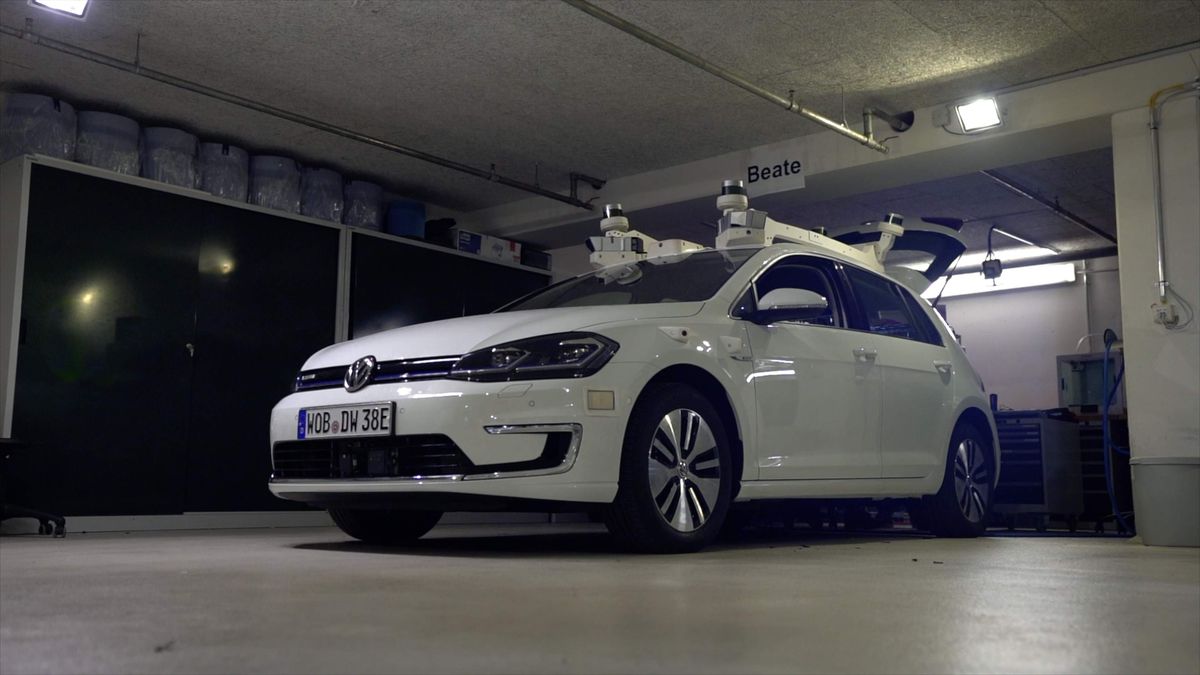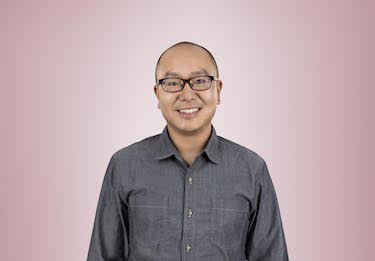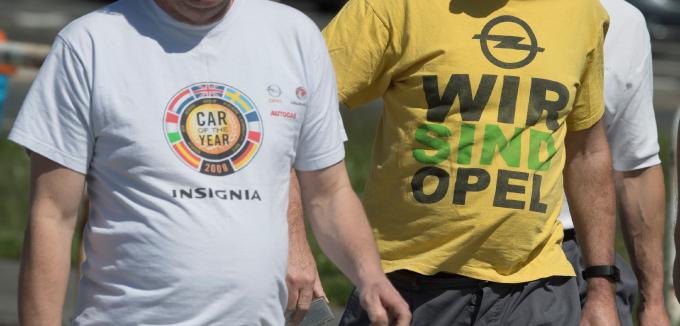Of all the luxury car brands, Audi has been the most aggressive in terms of putting semi-autonomous technology into its production cars. (See the A8 sedan, a version of which can’t be sold in the US thanks to its partially automated features.) Now the German automaker is offering a sneak peek of its effort to… Continue reading Audi pulls the curtain back on its self-driving car program
Tag: M and A
Hyundai plans to take hydrogen fuel-cell systems beyond vehicles
Follow Bengt
Hyundai Mobis fuel cell announcement
Hyundai sees a lot of potential in hydrogen fuel-cell technology. And it may find success with it by looking well past cars and SUVs—to other uses that could, as the company puts it, “transcend the transportation sector.”
With this week’s opening of a second plant making fuel-cell systems, in Chungju, South Korea, Hyundai's Mobis unit will increase its annual production of fuel-cell systems from its current 3,000 annual units to 40,000 units by 2022.
DON’T MISS: 2019 Hyundai Nexo: first drive of 380-mile fuel-cell crossover utility
The plan, called FCEV Vision 2030, highlights the parent company’s “commitment to accelerate the development of a hydrogen society.”
By 2030, Hyundai Motor Group aims to make 700,000 fuel-cell systems annually, of which 500,000 would be units for personal-use and commercial fuel-cell electric vehicles. That leaves 200,000 units for drones, vessels, and forklifts and other uses outside transportation such as power generation and energy storage systems.
That’s still a very small portion of what the company currently produces; in 2018 it expected 7.7 million worldwide vehicle sales across Hyundai and Kia.
CHECK OUT: 2019 Hyundai Nexo hydrogen fuel-cell vehicle pricing: Puzzling economics
To accomplish this plan, Hyundai established a dedicated division for fuel-cell business this month. Under the program, the Hyundai Motor Group and its suppliers plan to invest $6.8 billion to expand R&D operations and facilities, with an estimated 51,000 new jobs created.
Hyundai justifies the very steep growth curve by citing a McKinsey & Company study, pointing to an estimated global demand for up to 6.5 million fuel cell systems by 2030.
Hyundai Nexo
The 2019 Hyundai Nexo, which showcases the potential of a new generation of fuel-cell tech from the brand, with an estimated 380-mile range, will be available by sale or lease starting in January—albeit only in California, where a nascent commercial fueling infrastructure exists. That model is going to be the first test vehicle for a Level 4 automated-driving project with the autonomous-vehicle tech company Aurora.
READ MORE: Toyota enters $82 million partnership to roll out hydrogen trucks in Los Angeles port
Honda and GM continue to work on a next-generation fuel-cell system that will be produced in Michigan, and Toyota has confirmed that it’s looking to put the technology into more affordable, mass-market vehicles as well as commercial trucks and buses.
There’s another reason why Hyundai should be so bullish on fuel cells. The South Korean government is subsidizing a $2.3 billion plan to support various stages of the hydrogen fuel-cell development chain, including automakers, as well as 310 new hydrogen fueling stations.
Given the biggest limitation for fuel-cell technology in the U.S. today—a lack of hydrogen fueling infrastructure—aiming the growth of the technology toward commercial uses and very well-defined use cases could be a good plan to play on its strengths.
Via Deploys BusGo Service in Singapore with Land Transit Authority
Published December 17, 2018 4:08 pm, Via NYC
Via Deploys BusGo Service in Singapore with Land Transit Authority
The on-demand public bus project is now live for riders through a mobile app
Via, the world’s leading developer of on-demand shared mobility solutions, has announced today the first public-sector deployment of its technology in Asia. Through a partnership with Singapore’s Land Transit Authority (LTA), a new on-demand public bus service, ‘BusGo’, will enable commuters in the Joo Koon area to hail a dynamically-routed LTA bus directly from their smartphone.
“Via’s powerful technology is seamlessly integrating with public transit infrastructure around the globe, from Berlin to New York, redefining the way people get around cities,” said Daniel Ramot, co-founder and CEO of Via. “We have increasingly seen cities and towns ask how they can provide their residents with public transportation that radically improves the customer experience, and yet still achieves the same environmental and congestion-reducing benefits of existing mass transit. Via’s sophisticated on-demand shared transit technology is that solution, and we’re delighted to join forces with the LTA to launch this bold new service in Singapore.”
Riders will select their origins and destinations directly through the BusGo mobile app. Via’s advanced technology will direct passengers to a convenient bus stop for pickup and dropoff, allowing for quick and efficient shared trips without lengthy detours that take riders out of their way. Riders will simply show the mobile boarding passes displayed in the BusGo app to board the bus.
How to Ride in Joo Koon:
Download the BusGo app: Apple or Android
Select a pickup and dropoff location in BusGo’s Joo Koon service area
BusGo will process your booking request in real-time and match an available bus to pick you up or advise if a regular public bus services can serve you better
The BusGo app will provide an accurate estimate of your bus arrival time before booking
Once a ride is selected, BusGo will direct you to the nearest pickup point to meet your bus, and track your bus in real-time
Show the mobile boarding pass displayed in the BusGo app to board the bus
The BusGo service will operate from 11 am-3 pm and 8:30-11:30 pm on weekdays, excluding public holidays. Fares will be equivalent to a fixed bus distance of 3.2 km, regardless of the distance travelled. Distance-fare transfers and concession fares will continue to apply.
About Via
Via is re-engineering public transit, from a regulated system of rigid routes and schedules to a fully dynamic, on-demand network. Via’s mobile app connects multiple passengers who are headed the same way, allowing riders to seamlessly share a premium vehicle. First launched in New York City in September 2013, the Via platform currently operates in the United States, and in Europe through its joint venture with Mercedes-Benz Vans, ViaVan. Via’s technology is also deployed worldwide through partner projects with public transportation agencies, private transit operators, taxi fleets, private companies, and universities, seamlessly integrating with public transit infrastructure to provide the most cutting edge on-demand mobility innovation.
Read more
Nissan announces senior management change for North America
YOKOHAMA, Japan – To meet the demands of an increasingly competitive North American market, Nissan Motor Co., Ltd. President and CEO Hiroto Saikawa and Nissan North America Chairman Denis Le Vot have announced Nissan Latin America Chairman Jose Valls is appointed vice chairman, Nissan North America, in charge of U.S. sales and marketing, effective January 2,… Continue reading Nissan announces senior management change for North America
The Fall of the House of Ghosn – The Wall Street Journal
118 Comments By Sean McLain, Sean McLain The Wall Street Journal Biography @McLainSean sean.mclain@wsj.com Phred Dvorak, Phred Dvorak The Wall Street Journal Biography @Phred_Dvorak Google+ phred.dvorak@wsj.com Sam Schechner and Sam Schechner The Wall Street Journal Biography @samschech samschechner Google+ Sam.Schechner@wsj.com Patricia Kowsmann Patricia Kowsmann The Wall Street Journal Biography @kowsmann Dec. 16, 2018 6:35 p.m.… Continue reading The Fall of the House of Ghosn – The Wall Street Journal
Nissan board holds off picking successor for Ghosn as tensions with Renault brew – BNNBloomberg.ca
Nissan Motor Co.’s (NSANY.PK) board failed to pick a successor for former Chairman Carlos Ghosn, leaving the carmaker without a top official as it enters the fifth week since the car titan’s arrest and faces escalating tensions with partner Renault SA. The directors convened Monday to chart a path forward following the shock arrest of… Continue reading Nissan board holds off picking successor for Ghosn as tensions with Renault brew – BNNBloomberg.ca
Daimler Floats Plan to Increase Stake in China Venture – Bloomberg
Daimler Floats Plan to Increase Stake in China Venture Bloomberg Daimler AG has raised the prospect of boosting its stake in a joint venture with Chinese partner BAIC Motor Corp., according to people familiar with the … Go to Source
Henrik Fisker: ‘We’re keen to set up a tech centre in India, a battery factory and vehicle assembly too.’ – Autocar Professional
The Chairman and CEO of Fisker Inc is one of the world’s most prolific car designers and entrepreneurs and wants to change the paradigm of mobility with non-conformist and extreme electric vehicles. He lays out his vision for the future, which could include make in India through a manufacturing partnership, while also offering top tips… Continue reading Henrik Fisker: ‘We’re keen to set up a tech centre in India, a battery factory and vehicle assembly too.’ – Autocar Professional
Lyft Builds Out its Design Team by Adding 5 New Directors
Lyft designers are the driving force behind how we frame the consumer experience and tackle problems like shaping behavior change and reimagining cities. We’re excited to continue that momentum as we welcome a new group of talented and expert designers to the Lyft family. Directors Brian Ng, Jessica Rosenberger, Renato Valdés Olmos, Nick Barrett, and… Continue reading Lyft Builds Out its Design Team by Adding 5 New Directors
Demand is falling: Opel Ruesselsheim threatens short-time working
DPA Rüsselsheim headquarters: Employees must expect short-time work or even the discontinuation of a full shift in the coming year The models Insignia and Zafira apparently sell worse. Therefore, Opel has a substantial personnel overhang at its headquarters in Rüsselsheim, it says in a press release. Now short-time working or even one-shift operation threatens in… Continue reading Demand is falling: Opel Ruesselsheim threatens short-time working



